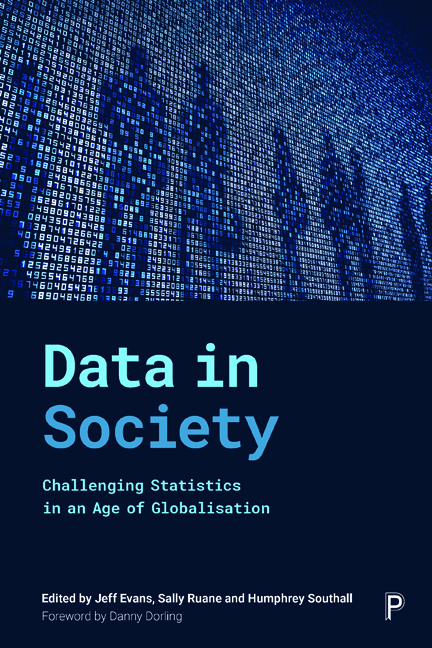Book contents
- Frontmatter
- Contents
- List of figures, tables and boxes
- Notes on contributors
- Foreword
- Preface
- General introduction
- Part I How data are changing
- Part II Counting in a globalised world
- Part III Statistics and the changing role of the state
- Part IV Economic life
- Part V Inequalities in health and wellbeing
- Part VI Advancing social progress through critical statistical literacy
- Epilogue: progressive ways ahead
- Index
14 - The ‘distribution question’: measuring and evaluating trends in inequality
Published online by Cambridge University Press: 30 April 2022
- Frontmatter
- Contents
- List of figures, tables and boxes
- Notes on contributors
- Foreword
- Preface
- General introduction
- Part I How data are changing
- Part II Counting in a globalised world
- Part III Statistics and the changing role of the state
- Part IV Economic life
- Part V Inequalities in health and wellbeing
- Part VI Advancing social progress through critical statistical literacy
- Epilogue: progressive ways ahead
- Index
Summary
Introduction
Up to 2008, the question of inequality had been largely marginalised as a political issue. The counterrevolution in economic thinking that emerged from the late 1960s set out to sideline the ‘distribution question’, of how the cake should be divided, that had played such a key role in the construction of post-war societies. Its very discussion was dismissed as heresy by the market theorists who came to dominate economic thinking. ‘Of the tendencies that are harmful to sound economics, the most poisonous is to focus on questions of distribution’, wrote the Nobel Laureate, Robert E. Lucas, one of the key architects of the market revolution (Lucas, 2004).
In recent years, however, the ‘distribution question’ has returned to the political agenda. Many factors have driven this renewed political and public interest. There is a growing concern that rewards at the top of finance and business have become increasingly disproportionate and undeserved, and mounting evidence that unequal societies bring social ills while eroding public trust in government.
Public antagonism is also being fuelled by an important by-product of widening socioeconomic gaps: the squeeze on living standards. Rising prosperity across rich societies was once the norm but has given way to widespread income stagnation (Dobbs, 2016). Across the rich world, it is the poorest who have been most vulnerable to static and falling incomes (OECD, 2016).
This chapter examines a different factor at work. Drawing on sources from independent academics, global institutions and UK official statisticians, it examines the role that statistics and data analysis have played in raising public consciousness about heightened inequality, and the official response in the UK. The chapter only examines trends in income inequality, that is from pay, social security benefits and interest and dividends from investment portfolios, though it is important to stress that personal wealth, meaning the ownership of assets such as property, savings and shares, has also become increasingly concentrated at the top since the mid-1980s.
The 99% versus the 1%
In the late 1990s, three leading scholars of inequality, the late Oxford-based economist Sir Tony Atkinson, Thomas Piketty of the Paris School of Economics and Emmanuel Saez of the University of California, Berkeley, embarked on detailed and sustained research into the long-run trend in top income shares – studies that were to have profound consequences for the inequality debate.
- Type
- Chapter
- Information
- Data in SocietyChallenging Statistics in an Age of Globalisation, pp. 187 - 198Publisher: Bristol University PressPrint publication year: 2019



